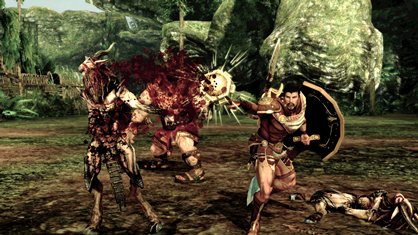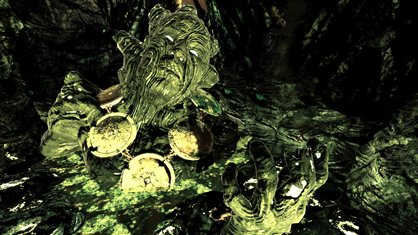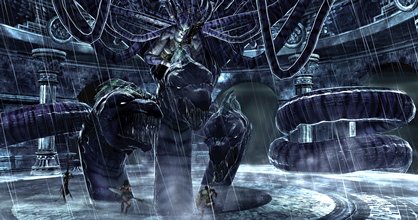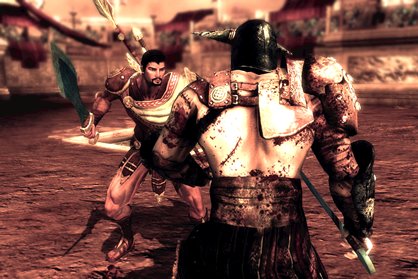Greek mythology is a complex tangle of fables that have helped generations understand themselves and the worlds they live in. From morality to mortality, this epic collection of narratives holds all the answers. So, considering California-based developers Liquid Entertainment have taken it upon themselves to completely re-imagine one of the biggest Greek narratives of all – that of the journey of Jason and the Argonauts – they must have a pretty big message to get across, right? We asked lead designer Charley Price that exact question. “I suppose the moral to the story is never give up. Never lose focus. The characters around Jason that have fallen on hard times have done exactly that, but there can always be redemption. One good deed can always repay the past”.

Rise of the Argonauts is an action RPG. It is a game, Price claims, that aims to “fulfill both halves of that promise”. It’s certainly got the action bit right. The real-time combat is excitingly dynamic in a way many RPG games fail to manage. The mechanics, from our vantage point, seem not dissimilar to the likes of God of War and Ninja Gaiden. There’s a quick attack and a heavy attack, and the triggers are used to run, duck and weave. Every opponent (bar the big, bad bosses – screen-sized enemies worthy of the games we referenced a sentence ago) is only one hit away from being killed. Strike someone in the neck, and they’re going down. Liquid wishes to emphasis the ‘lethality’ of the combat. Certainly, it’s a physical experience. If an enemy is blocking your sword attacks, you can whip out your mace in real-time and literally smash your way through.
But the RPG side of things also appears to be as watertight as its titular Argo barge (which you’re free to explore between missions, surveying your booty and chatting to comrades a la Mass Effect). The devil, however, isn’t in the details. In fact, compared to most other western RPGs, it’s been scaled back considerably. Instead of leveling up and improving your stats by affixing gauntlets to your arms and goblets to your, er, teeth, instead you’re restricted to just four upgradeable items – mace, spear, sword and armour. Each additional piece of armour collected is visually designed to remind you of the arduous task performed to obtain it. Liquid want you to see your progress etched not on a progress screen but across Jason’s face.

But it’s the amount of thought that’s gone into crafting and re-imagining ancient Greece and those that inhabit it that really captures the imagination. Consider some of the Argonauts that join you on your quest (the decisions you make will affect who’s in your squadron). Perennial orphan Atalanta is now a feisty huntress raised by centaurs in a jungle world called Saria. Achilles is a cocky, impatient young warrior who battles Jason in a gladiatorial arena. And the gods and demigods that populate the islands are brilliantly recognized in all of their flawed glory. Medusa, the vain stunner whose hair was transformed into live snakes by Athena, is now a round, grotesque figure with snakes popping out at all angles. Eerily, she sits, pinned to the ceiling by her reptilian extremities, cuddling and cooing over a statue of her former self. It’s a disturbing sight, yet that statue holds the key to her redemption, should you so choose.
You can sail to any of a number of islands from the get-go (NB: no sailing mini-games); Iolcus, Mycenae, Delphi, Kythra and Saria, each of which worships one of the gods you’re keen to find favour with. You can travel to any island in any order, but the mandatory opening level takes place directly after Alceme’s death, with Jason and Hercules hunting down the assassin, who works for Hecate’s mysterious cult, the Blacktongues. They’re worried about a prophecy in which Alceme brings down the cult, y’see.

Impressively, each NPC you come across has their own name and story arc – which is progress indeed compared to Oblivion, where you could have sworn the same two British actors were following you around like something out of Monty Python. Talking to Agrius, Saria’s blacksmith, reveals further insight into their belief system – they feel that each weapon forged has a good or bad aura, depending on the deeds it is used for.
Jason can find favour with four gods – Athena, Hermes, Apollo and Ares – depending on how he approaches each situation and reacts to the NPCs (using the very Bioware-esque dialogue tree). If he chooses a cunning solution, for example, the Olympian God of thieves and wit, Hermes, will give the thumbs-up. Decide to get a bit bloodthirsty, and instead you’ll be raising a toast to Ares. Compassion floats Apollo’s boat, while Athena is all about the justice. Each god boasts their own skill tree – improve your standing with the gods to unlock special moves which allow you to call upon the god’s might.
Weekly digests, tales from the communities you love, and more

You can send a deceased person’s soul to the gods for judgment if you deem it necessary – commend a certain aspect of their personality to the gods and you’ll please at least one of them. A fallen warrior turned murderer named Callous, publicly strung-up by the Centaurs, is one such soul you can choose to save – and as you’ll find out, no one is truly evil in this world. The depth to the characters is incredible. They even share their own language, created by the game writer and derived from Polynesian.
In RPGs, by definition, you spend a large chunk of your time simply soaking in the world around you, so it’s promising that ROTA’s plot is so engaging and imaginative. ROTA also goes to great pains to refer the player back to the plot so, in Price’s words, “they never stop and think ‘why am I in this dungeon again?’” The plot, for those that haven’t caught our prior coverage, is that Jason’s wife-to-be, Alceme, is assassinated on their wedding day. So after sealing her in a mausoleum and moping for a bit, he decides to hop from island to island duffing up demigods in a bid to claim the does-it-doesn’t-it-exist Golden Fleece, which all of a sudden apparently has the power to bring her back to life. Any excuse for a good old scrap, we say. Looks to be coming along nicely – RPG fans might find the lack of customizability a bit restrictive, but the depth of the world and the wealth of the backstory should more than compensate.
Sep 5, 2008


